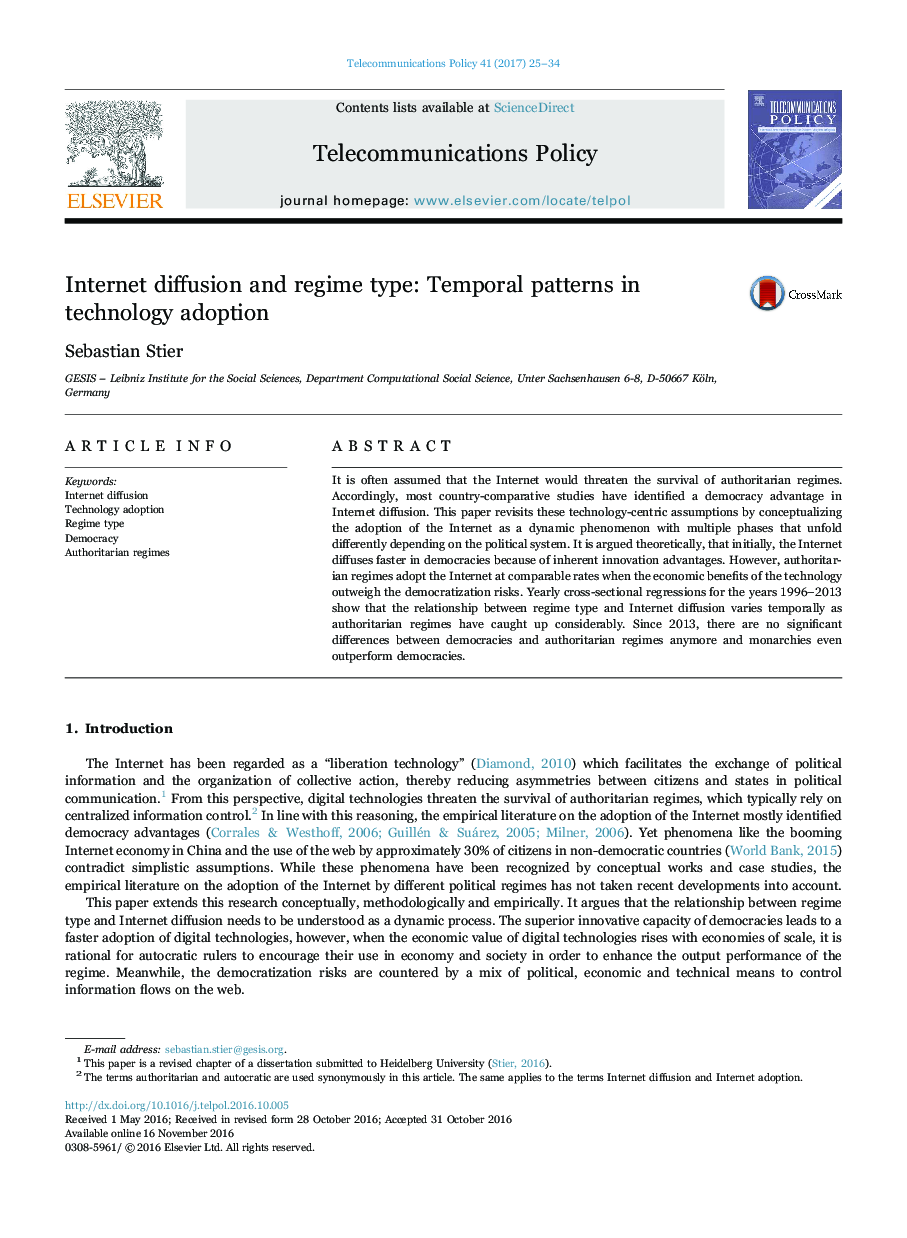| Article ID | Journal | Published Year | Pages | File Type |
|---|---|---|---|---|
| 4973319 | Telecommunications Policy | 2017 | 10 Pages |
â¢Temporal variations in the relationship between regime type and internet diffusion.â¢Discussion of theoretical and methodological shortcomings in previous studies.â¢Statistical analysis of country-level internet diffusion from 1996 to 2013.â¢Autocracies have caught up with democracies in internet diffusion.â¢Economic benefits of the internet are vital to democratic and autocratic regimes.
It is often assumed that the Internet would threaten the survival of authoritarian regimes. Accordingly, most country-comparative studies have identified a democracy advantage in Internet diffusion. This paper revisits these technology-centric assumptions by conceptualizing the adoption of the Internet as a dynamic phenomenon with multiple phases that unfold differently depending on the political system. It is argued theoretically, that initially, the Internet diffuses faster in democracies because of inherent innovation advantages. However, authoritarian regimes adopt the Internet at comparable rates when the economic benefits of the technology outweigh the democratization risks. Yearly cross-sectional regressions for the years 1996-2013 show that the relationship between regime type and Internet diffusion varies temporally as authoritarian regimes have caught up considerably. Since 2013, there are no significant differences between democracies and authoritarian regimes anymore and monarchies even outperform democracies.
